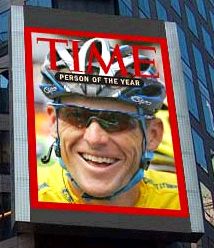There’s an interview with Cory Doctorow in Openbusiness this morning. Doctorow, who distributes his books for free on the internet, envisions a future in which writers see free electronic distibution as a valuable component of their writing and publishing process. This means, in turn, that writers and publishers need to realize that ebooks and paper books have distinct differences:
Ebooks need to embrace their nature. The distinctive value of ebooks is orthogonal to the value of paper books, and it revolves around the mix-ability and send-ability of electronic text. The more you constrain an ebook’s distinctive value propositions — that is, the more you restrict a reader’s ability to copy, transport or transform an ebook — the more it has to be valued on the same axes as a paper-book. Ebooks *fail* on those axes.
On first read, I thought that Doctorow, much like Julia Keller in her Nov. 27 Chicago Tribune article, wanted to have it both ways: he acknowledges that, in some ways, ebooks challenge the idea of the paper books, but he also suggests that the paper book will remain unaffected by these challenges. But then I read more of Doctorow’s ideas about writing, and realized that, for Doctorow, the malleability of the digital format only draws attention to the fact that books are not always as “congealed” as their material nature suggests:
I take the view that the book is a “practice” — a collection of social and economic and artistic activities — and not an “object.” Viewing the book as a “practice” instead of an object is a pretty radical notion, and it begs the question: just what the hell is a book?
I like this idea of the book as practice, though I don’t think it’s an idea that would, or could, be embraced by all writers. It’s interesting to ponder the ways in which some writers are much more invested in the “thingness” of books than others — usually, I find myself thinking about the kinds of readers who tend to be more invested in the idea of books as objects.
Tag Archives: publishing
i am the person of the year

Time magazine is allowing anyone to submit photos of people they want to be “Person of the Year” to be projected on a billboard in Times Square. However, the website states that what they really want is to have people submit photos of themselves. All the photos that are selected to be projected will be photographed by webcam and their owners will be contacted. The images can be viewed, printed and sent to friends.
If the chance of seeing your image on a giant billboard in Times Square in real time is small, what is the difference between having Time photoshop your face onto its cover and doing it yourself? Is it the idea of projecting your image onto a billboard (which can be simulated as well)?
Is this Time magazine diminishing their role as information filter or it is an established news outlet recognizing the idea that anyone can be a publisher?
chicago tribune on e-lit
A November 27 Chicago Tribune article by Julia Keller bundles together hypertext fiction, blogging, texting, and new electronic distribution methods for books under a discussion of “e-literature.” Interviewing Scott Rettberg (of Grand Text Auto) and MIT’s William J. Mitchell, the reporter argues that the hallmark of e-literature is increased consumer control over the shape and content of a book:
Literature, like all genres, is being reimagined and remade by the constantly unfolding extravagance of technological advances. The question of who’s in charge — the producer or the consumer — is increasingly relevant to the literary world. The idea of the book as an inert entity is gradually giving way to the idea of the book as a fluid, formless repository for an ever-changing variety of words and ideas by a constantly modified cast of writers.
A fluid, formless repository? Ever-changing words? This is the Ipod version of the future of literature, and I’m having a hard time articulating why I find it disturbing. It might be the idea that the digitized literature will bring about a sort of consumer revolution. I can’t help but think of this idea as a strange rearticulation of the Marxist rhetoric of the Language Poets, a group of experimental writers who claimed to give the reader a greater role in the production process of a literary work as part of critique of capitalism (more on this here). In the Ipod model of e-literature, readers don’t challenge the capitalist sytem: they are consumers, empowered by their purchasing power.
There’s also a a contradiction in the article itself: Keller’s evolutionary narrative, in which the “inert book” slowly becomes an obsolete concept, is undermined by her last paragraphs. She ends the article by quoting Mitchell, who insists that there will always be a place for “traditional paper-based literature” because a book “feels good, looks good — it really works.” This gets us back to Malcolm Gladwell territory: is it true that paper books will always seem to work better than digital ones? Or is it just too difficult to think beyond what “feels good” right now?
